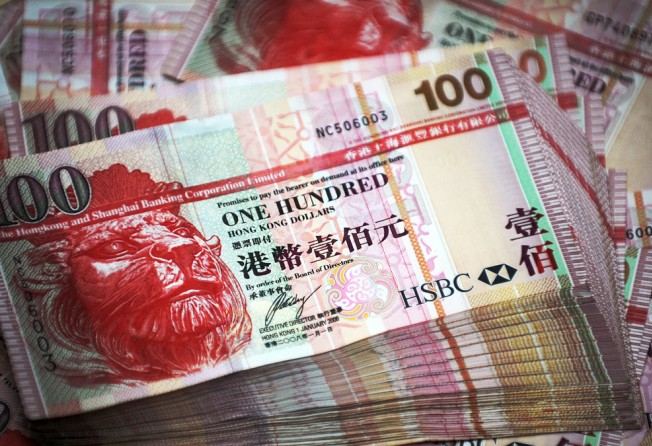
From a currency board to a banana republic manipulation
The link to the US dollar is not what it was and it could now face intense speculative risk

Under the peg, the [Hong Kong Monetary Authority] will use its HK$3.3 trillion Exchange Fund to intervene whenever the currency edges close to 7.75 or 7.85.
Business, January 22
The nature of our link to the US dollar has changed a good deal over time. It started as a currency board, an automatic adjustment mechanism. It now looks like a banana republic manipulation.
The way it then worked is that if there was a big demand for HK dollars, the note issuing banks could print all they wished provided they always paid by placing an equivalent amount in US dollars with the Exchange Fund at a rate of HK$7.80.
If there was a sudden rush out of HK dollars, the two banks would buy in their banknotes, turn them over to the Exchange Fund and get their US dollars back. It’s called interest rate arbitrage.
The beauty of the scheme was that big demand for HK dollars would sooner or later create an oversupply, which would push down interest rates. People would then ask why they should hold HK dollars paying, let us say, 1 per cent interest, when US dollars paid 6 per cent and the exchange rate was fixed. Back out of HK dollars they would go and the system would rebalance.
The same thing would happen in reverse if there was a rush out of HK dollars. HK dollar interest rates would go up and attract money back in. It was all self-adjusting.
Some adjustments were made by the 1997/98 financial crisis, but the system proved itself. Speculators attacked the HK dollar, expecting it to crumble as many Asian currencies did at that time. HK dollar interest rates went sky high, ordinary people came in (I did), the peg held and the speculators left.
Now shift to conditions after the 2007/08 financial crisis, when the US Federal Reserve Board pushed US interest rates down to near zero at the same time as there was a big demand for HK dollars. This time the interest rate arbitrage could not work. People could not be attracted out of HK dollars to US dollars by higher interest rates abroad. They were not higher.
The rules of the peg had been substantially changed by this time, however, allowing the HKMA to engage in manipulation. It bought up the inflows directly in exchange for various forms of IOU paper totalling some HK$1.2 trillion in addition to the HK$350 billion backing of the banknote issue.
This worked but it made the peg no longer an automatic mechanism and the danger here is that big speculators notice it.
They cannot break a currency board if it sticks to the rules and takes the pain of interest rate swings. But they can break a manipulation and the HKMA is fooling itself if it thinks HK$3.3 trillion in total Exchange Fund assets is a big war chest.
The test is now coming as the HK dollar suddenly weakens. Will the HKMA go back to currency board principles and allow high interest rates to attract money back or will it resort to currency manipulation alone, even when the Exchange Fund is depleted?
If the second of these two, then the peg has been made a sham, the currency board has been abandoned and the link is at speculative risk.